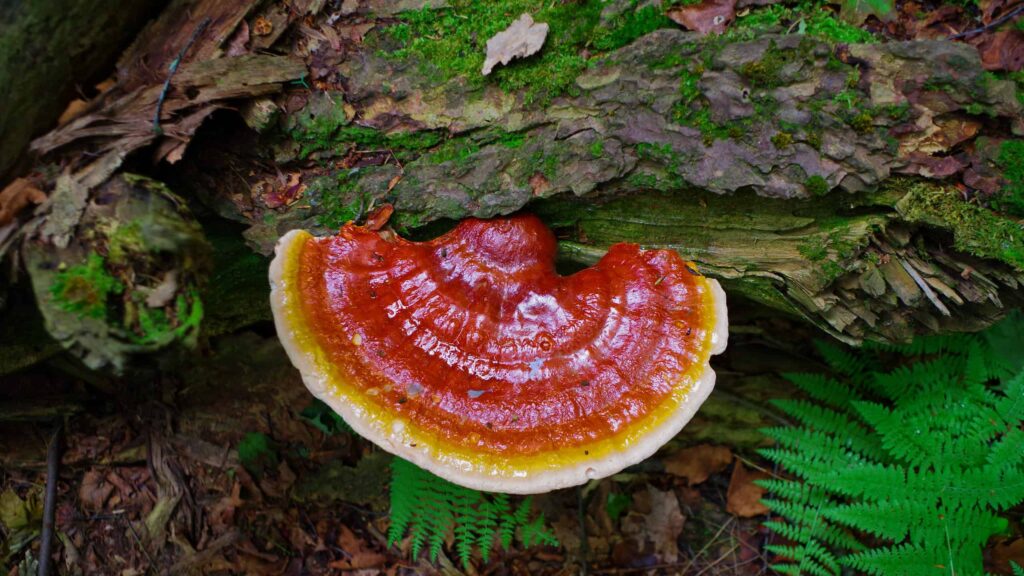Introduction
Functional mushrooms have been used for centuries in traditional medicine systems for their potential health benefits. Among the multitude of mushrooms with recognized medicinal properties, Reishi, scientifically known as Ganoderma lucidum, stands out as one of the most revered and researched. Reishi mushrooms are often referred to as the “mushrooms of immortality” and have been celebrated for their potential to promote overall well-being and support various aspects of health. In this comprehensive guide, we will delve into the world of Reishi functional mushrooms, exploring what Reishi is, its potential health advantages, the science behind its effects, different forms of consumption, dosage recommendations, and safety considerations. Whether you’re a novice to functional mushrooms or looking to delve deeper into the wonders of Reishi, this guide will provide valuable insights into the multifaceted world of Reishi mushrooms.
What Is Reishi?
Reishi, also known as Lingzhi in traditional Chinese medicine, is a species of mushroom that has been used for centuries in various cultures, particularly in East Asia, as a natural remedy for a wide range of health issues. Reishi mushrooms are distinctively shaped with a shiny, reddish-brown cap and a woody stem. They are often categorized as “functional mushrooms” due to their potential health benefits.
The primary active compounds in Reishi mushrooms are triterpenoids and polysaccharides, which are believed to contribute to their therapeutic properties. Reishi is available in various forms, including dried mushrooms, extracts, powders, and dietary supplements.
The Benefits of Reishi Functional Mushrooms
Immune System Support
Reishi is renowned for its potential to boost the immune system. Its polysaccharides are believed to stimulate the production of white blood cells, enhance immune responses, and support overall immune health.
Stress Reduction
Reishi is often associated with stress reduction and relaxation. It contains compounds that may help lower stress hormone levels and promote a sense of calm.
Anti-Inflammatory Properties
Reishi’s anti-inflammatory effects are well-documented. It may help reduce inflammation in the body, which can have a positive impact on various health conditions, including chronic inflammation-related disorders.
Support for Cardiovascular Health
Reishi is thought to promote cardiovascular health by helping regulate blood pressure and cholesterol levels. Its triterpenes may contribute to improved circulation and heart health.
Liver Detoxification
Reishi is known for its potential to support liver function and detoxification. It may help protect the liver from damage and promote its healthy functioning.
Antioxidant Benefits
Reishi mushrooms contain potent antioxidants that can help protect cells from oxidative stress and free radical damage.
Improved Sleep Quality
Some individuals report enhanced sleep quality and better sleep patterns when consuming Reishi mushrooms regularly.
The Science Behind Reishi’s Effects
The potential health benefits of Reishi mushrooms are attributed to their diverse range of bioactive compounds. Triterpenes, in particular, are believed to contribute to Reishi’s therapeutic properties. These compounds can have various physiological effects, including reducing inflammation, supporting the immune system, and promoting overall well-being.
Additionally, Reishi’s polysaccharides are known for their immunomodulatory properties. They can help regulate and balance the immune system, making it more efficient in responding to threats and maintaining a state of equilibrium.
Research on Reishi mushrooms is ongoing, and numerous studies have provided evidence supporting their potential health advantages. For example, a study published in the “Journal of Clinical Oncology” in 2008 found that Reishi mushroom extract could improve immune responses in patients with advanced-stage colorectal cancer.
Different Forms of Reishi Consumption
Reishi mushrooms can be consumed in various forms, and the choice of form often depends on personal preference and the desired effect. Here are some common ways to incorporate Reishi into your routine:
- Dried Mushrooms: Whole dried Reishi mushrooms can be brewed as a tea or used as a base for soups and broths.
- Reishi Extracts: Reishi extracts, often available in liquid form, are highly concentrated and can be added to beverages or taken as drops under the tongue.
- Reishi Powders: Reishi mushroom powders can be mixed into smoothies, beverages, or used as a cooking ingredient in various recipes.
- Reishi Capsules or Tablets: For those who prefer convenience, Reishi supplements in capsule or tablet form are readily available.
Dosage Recommendations:
Determining the appropriate dosage of Reishi can vary from person to person and depends on factors such as individual sensitivity, the form of consumption, and the desired effects. General dosage guidelines include:
- For dried Reishi mushrooms, making a tea with 1-2 grams of dried slices is a common starting point.
- Reishi extracts are often used in dropper form, with a typical dosage ranging from 1-3 droppers full (about 1-3 mL) per day.
- Reishi powders can be added to beverages or food, with a starting dose of 1-2 grams per day.
- Reishi supplements in capsule or tablet form typically have recommended daily dosages, which can vary by brand and concentration. It’s important to follow the manufacturer’s instructions.
As with any supplement or natural remedy, it’s advisable to consult with a healthcare professional before initiating a Reishi regimen, especially if you have underlying health conditions, are taking other medications, or are pregnant or nursing.
Safety Considerations
Reishi mushrooms are generally considered safe and well-tolerated when used at recommended dosages. However, there are some safety considerations to keep in mind:
Mild side effects may include digestive issues, such as upset stomach or diarrhea, but these are relatively rare. Reducing the dosage can often alleviate these symptoms.
Reishi mushrooms may have blood-thinning effects, so individuals taking blood-thinning medications should exercise caution and consult with a healthcare professional.
Conclusion
Reishi functional mushrooms are revered for their potential to promote overall well-being and support various aspects of health. With their immunomodulatory properties, stress-reducing effects, and anti-inflammatory actions, Reishi mushrooms offer a multifaceted approach to health enhancement.
While Reishi is generally safe and well-tolerated, it’s essential to consult with a healthcare professional before starting a regimen, especially if you have underlying health conditions or are taking other medications. By approaching Reishi use mindfully and with a clear understanding, individuals can explore its potential health benefits and unlock a path to enhanced well-being and vitality.

